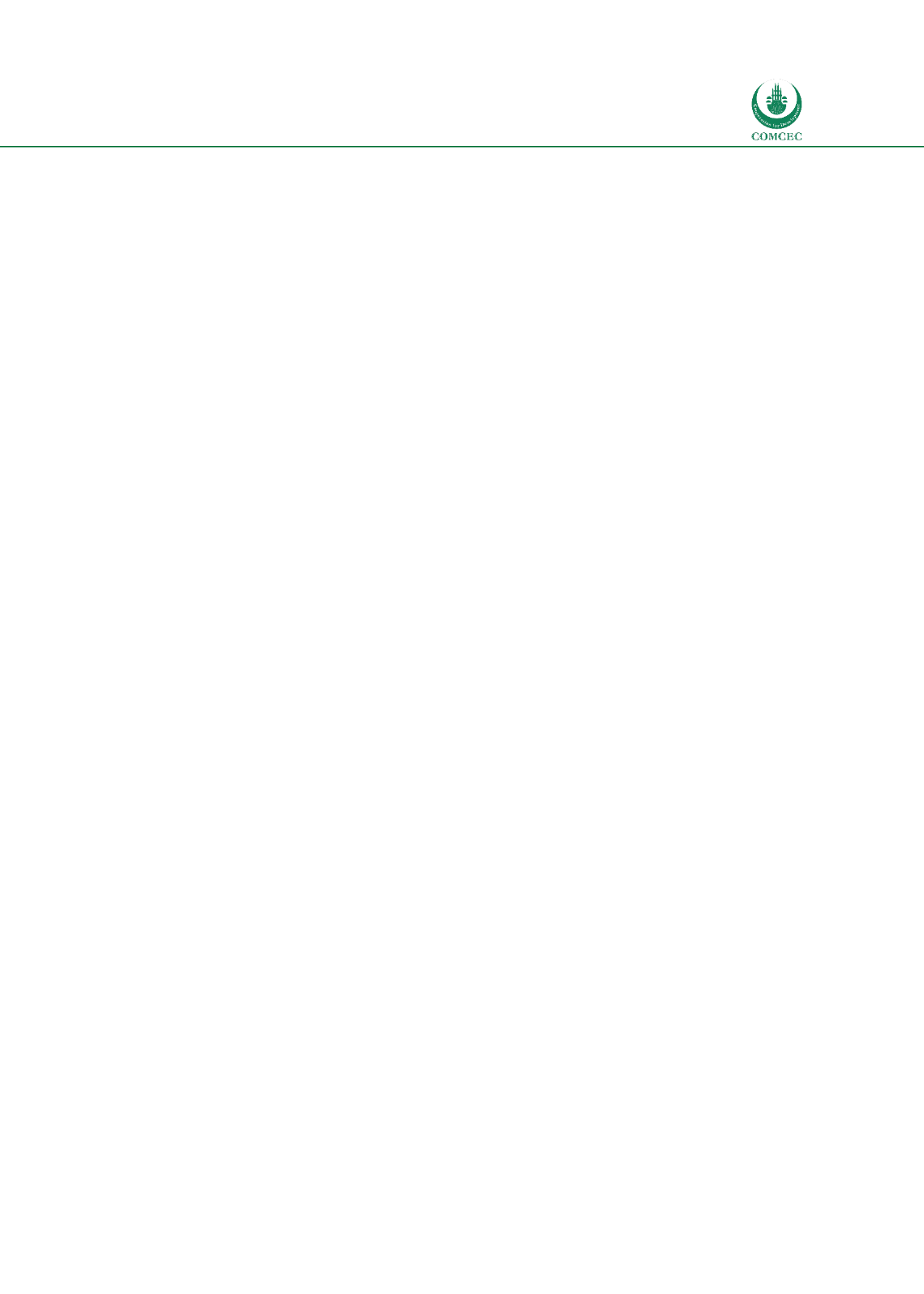

National and Global Islamic Financial Architecture:
Prolems and Possible Solutions for the OIC Member Countries
99
establish an investor protection fund to compensate investors who suffer pecuniary loss
arising from insolvency, bankruptcy or negligence of a dealing member firm. These form the
laws that provide the basis for both conventional and Islamic finance consumer protection.
CBN also established the Consumer Protection Department in 2012 to co-ordinate complaints
arising from Customer interactions with the banking sector as well as the Payment Systems
Policy and Oversight Office to address issues relating to payment systems. Additionally, the
National Assembly enacted the Financial Ombudsman Act in 2015 which aims to establish the
Nigerian Financial Ombudsman Office for the resolution of disputes within the financial sector.
Good governance and conduct of businesses are critical in maintaining consumer confidence in
the financial system. It is in the realization of this that the CBN developed the code of corporate
governance based on the IFSB 3 standards for implementation by the Islamic financial
institutions under its purview, though this is still in draft form. However, a guideline on a good
conduct of business practice based on the IFSB requirements is yet to be developed.
Institutional arrangement put in place to address the issue of consumer protection in the
financial sector include setting up units/departments by the regulators to deal with consumer
complaints emanating from both Islamic and conventional financial institutions. To ensure that
sukuk
investors are properly protected, the SEC issued robust and comprehensive guidelines
for the issuance of sukuk (rules 569 – 588). An arrangement is also being made to set up the
financial ombudsman office to arbitrate on consumer related issues.
The CBN is responsible for the financial literacy programme in the country. As a critical
component of the Financial Inclusion Strategy, the CBN developed a Financial Literacy
Framework (FLF) in 2013. The document articulates a strategic direction for a multi
stakeholder approach to the delivery of financial education programs across various target
groups of the population in Nigeria.
At the implementation stage of the FLF, the Consumer Protection Department of CBN
embarked on several consumer education activities aimed at improving the financial literacy
levels of consumers of financial services. Notable activities were: Financial literacy mass
awareness and sensitization campaigns across the six geo-political zones of the country, school
reach out and mentoring programmes to inculcate the right financial habits and skills in
children, TV appearances, radio phone in programmes and print media to educate members of
the banking public of recent consumer protection regulations, and school curriculum
developments to include a financial literacy curriculum for primary and high schools in
Nigeria. For most of these, a presentation on Islamic finance was made in order to increase
awareness on Islamic finance.
Deposit Insurance
The NDIC introduced a framework for Non-Interest Deposit Insurance Scheme (NIDIS) in 2012
to cover the Depositors of Islamic banks in Nigeria. According to Yakasai (2015), the NIDIS in
operation was adopted from the Malaysia Deposit Insurance Scheme model of the
Kafalah bil
Ujur
[Fee-based Guarantee]
Shari'ah
-Contract. The scheme is compulsory for all forms of
Islamic banking. Under the scheme, the Maximum Deposit Insurance Coverage (MDIC) for all
Islamic Banking Institutions is the same as the conventional banks, which is presently
₦500,000 (approx. USD2,538) per depositor per account and ₦200,000 (approx. USD1,015) per
depositor per account for microfinance banks. There are two major sources of the fund:
















